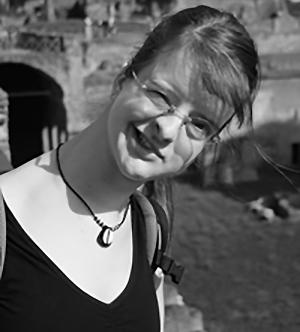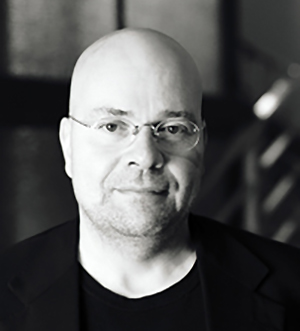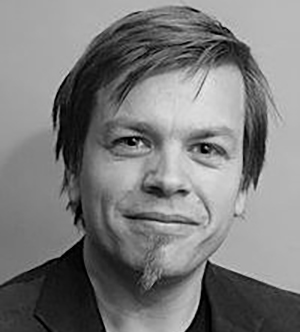 Neither hypnosis, nor the study of syphilis, nor the debate on Friedrich’s III. death of throat cancer – Arthur Schnitzler has followed the medical discourse of his time and participated in its shaping. His Medizinische Schriften documents this participation in a multitude of different reviews, reports, and the only independent study Über funktionelle Aphonie und deren Behandlung durch Hypnose und Suggestion. In this text materia Schnitzler’s comments on his contemporaries’ medical works and the Viennese School present a well-grounded analysis of the situation of the medical profession during his time. These texts demonstrate different kinds of knowledge at the same time: Knowledge about the treatment of hysteria, the aetiology of syphilis, the arguments of hereditary theories and other issues. The extensive opus of Schnitzler’s literary texts stands next to this medical discourse, coeval varies and expounds its problems and therefore transforms parts of this medical knowledge. Read more
Neither hypnosis, nor the study of syphilis, nor the debate on Friedrich’s III. death of throat cancer – Arthur Schnitzler has followed the medical discourse of his time and participated in its shaping. His Medizinische Schriften documents this participation in a multitude of different reviews, reports, and the only independent study Über funktionelle Aphonie und deren Behandlung durch Hypnose und Suggestion. In this text materia Schnitzler’s comments on his contemporaries’ medical works and the Viennese School present a well-grounded analysis of the situation of the medical profession during his time. These texts demonstrate different kinds of knowledge at the same time: Knowledge about the treatment of hysteria, the aetiology of syphilis, the arguments of hereditary theories and other issues. The extensive opus of Schnitzler’s literary texts stands next to this medical discourse, coeval varies and expounds its problems and therefore transforms parts of this medical knowledge. Read more
Archiv des Tags «Transforming Knowledge and Epistemic Cultures»
Companies with international ambitions are increasingly becoming global players. Many of them have decided to fight for their share of the international market, or even for market leadership through such activities as company acquisition or the establishment of joint ventures, as well as by engaging in various other types of cooperation with companies abroad. Such partnerships are now more rapidly attainable than ever before, thanks to modern media of communication and increasing mobility, among other things. Consequently, these global players have a constant need to recreate their corporate culture and identity. Read more
 In media studies it is often argued that the emergence of new media inevitably leads to anxieties among devotees of old media who suspect that these media become irrelevant: photography menaces painting, film executes photography, tv menaces film, and the Internet finishes everything else. The printed book is no exception from this logic. Long before the invention of ebooks and Open access, various prophets predicted the decline of the Gutenberg Galaxis. Even without subscribing to such apocalyptic visions, we can not overlook the fact that the humanistic book has come under pressure. Being the unquestioned and primordial scientific medium in the 20th century, an assembly of habituations and practices has shifted within a few years. That implies institutions of advanced studies, publishers, research communities and the scholars themselves. The question, thus, is: Which role will the printed book play within and without the humanities?
In media studies it is often argued that the emergence of new media inevitably leads to anxieties among devotees of old media who suspect that these media become irrelevant: photography menaces painting, film executes photography, tv menaces film, and the Internet finishes everything else. The printed book is no exception from this logic. Long before the invention of ebooks and Open access, various prophets predicted the decline of the Gutenberg Galaxis. Even without subscribing to such apocalyptic visions, we can not overlook the fact that the humanistic book has come under pressure. Being the unquestioned and primordial scientific medium in the 20th century, an assembly of habituations and practices has shifted within a few years. That implies institutions of advanced studies, publishers, research communities and the scholars themselves. The question, thus, is: Which role will the printed book play within and without the humanities?
Dear participants
We are very much looking forward to meeting you at Schloss Münchenwiler in January! Meanwhile, we offer you blog space to get to know each other in advance. This blog is meant to connect participants before and after the Winter School.
Here you can share information about your research projects as they progress; you can also share information about events that might be of interest to your peers; or, you can raise questions that are currently on your mind. In short, this blog offers a space where TransFormations can be discussed as well as performed.
In that sense: Join us and transform!
Your Winter School Project Team
Prof. Dr. Virginia Richter
Dr. Manuela Rossini
Dr. des. Sabina von Fischer
 Societies and cultures depend on shared knowledge – for instance about different social roles and positions, the norms and behaviour associated with these roles, rights and duties, shared values or a common cultural heritage to name but a few examples. In order to be shared, knowledge on the one hand needs to circulate within a specific group. And on the other hand, of course, knowledge (or bits and pieces thereof) is also constantly exchanged with other such groups – purposefully or not. Hence, knowledge – willingly or not – is constantly on the move.
Societies and cultures depend on shared knowledge – for instance about different social roles and positions, the norms and behaviour associated with these roles, rights and duties, shared values or a common cultural heritage to name but a few examples. In order to be shared, knowledge on the one hand needs to circulate within a specific group. And on the other hand, of course, knowledge (or bits and pieces thereof) is also constantly exchanged with other such groups – purposefully or not. Hence, knowledge – willingly or not – is constantly on the move.
When: 22-27 January 2012
Where: Schloss Münchenwiler near Berne, Switzerland
Languages: English (main), German, French
ECTS: 6 | Costs: 500.- Swiss francs (travel and accommodation covered by organizer)
Application deadline: 27 November 2011
In post-industrial societies, due to the impact of globalisation and technological development, we are witnessing a growth and diversification of the sites of knowledge production and the ways in which a variety of actors articulate and circulate knowledge. As a result, the privileged position of ‘scientific’ knowledge is contested, making knowledge the symbolic and material capital not only of academic ‘experts’. By the same token, the authorization of ‘knowledge’ becomes a matter of debate and changing power structures. The Winter School analyses and discusses these changes from a historical, sociological, cultural and philosophical perspective. It reflects in particular on the challenges thereof for the humanities and the social sciences regarding their role in the knowledge society of (post)modernity and their contribution to larger processes of transformation.

